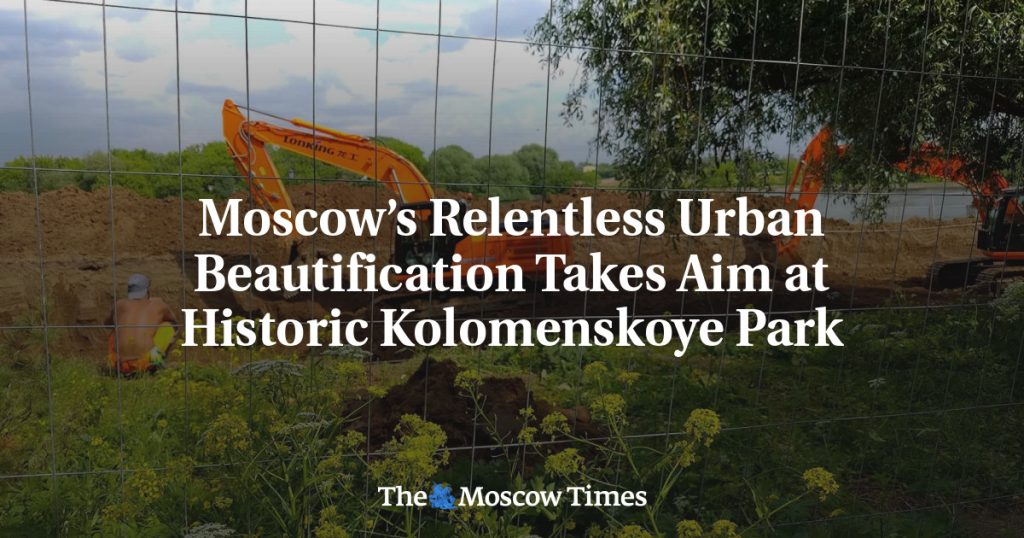In Moscow, the Kolomenskoye Museum-Reserve, a popular spot for city dwellers seeking refuge in nature, is undergoing extensive development as part of the city’s urban beautification projects under Mayor Sergei Sobyanin’s tenure. The construction aims to transform the park’s waterfront into a sleek, modern recreational space with new amenities like observation decks, amphitheaters, sports facilities, and restaurants. However, the construction has sparked outrage among residents who feel that it is encroaching on protected natural areas within the park.
Despite the city’s efforts to improve recreational spaces for Muscovites, conflicts arise when development projects target protected areas or clash with the opinions of local residents. In the case of Kolomenskoye, a significant portion of the park’s embankment has been fenced off for construction, leading to concerns about the destruction of historical heritage and protected natural spaces. Residents and activists have raised objections to the lack of transparency and consultation in the decision-making process, with concerns about the impact on local archeological sites and ecosystems.
The Kolomenskoye project has faced opposition from the community, with over 60% of respondents in an online survey expressing disapproval of the development plans. While some residents support the concept of urban improvement projects, they draw the line at the destruction of protected areas that should be left untouched. The city’s balancing act between generating revenue through commercial facilities in green spaces and preserving natural areas has become a point of contention among stakeholders.
One of the key issues highlighted by activists and residents is the lack of opportunities for public participation and consultation in urban planning projects. The removal of public hearings for urban planning in Moscow limits residents’ ability to voice concerns and participate in decision-making processes. Experts caution that development should not come at the expense of protected natural areas and stress the importance of preserving untouched ecosystems for their ecological value.
While the city emphasizes the importance of nature conservation in legislation, the prioritization of profit and development often takes precedence over environmental concerns. Moscow officials face challenges in balancing economic interests with ecological preservation, leading to conflicts with residents and environmental activists. Finding a middle ground through participatory planning and transparent decision-making processes could help resolve conflicts and ensure sustainable development that respects the environment and community interests.
As Moscow continues its urban development plans, including the Kolomenskoye project, the need for open dialogue, community engagement, and environmental stewardship becomes increasingly apparent. Residents, activists, and experts advocate for greater transparency, public participation, and consideration of environmental impact in urban planning decisions. By fostering a more inclusive and sustainable approach to development, the city can ensure the long-term well-being of its residents and the preservation of its natural heritage.


